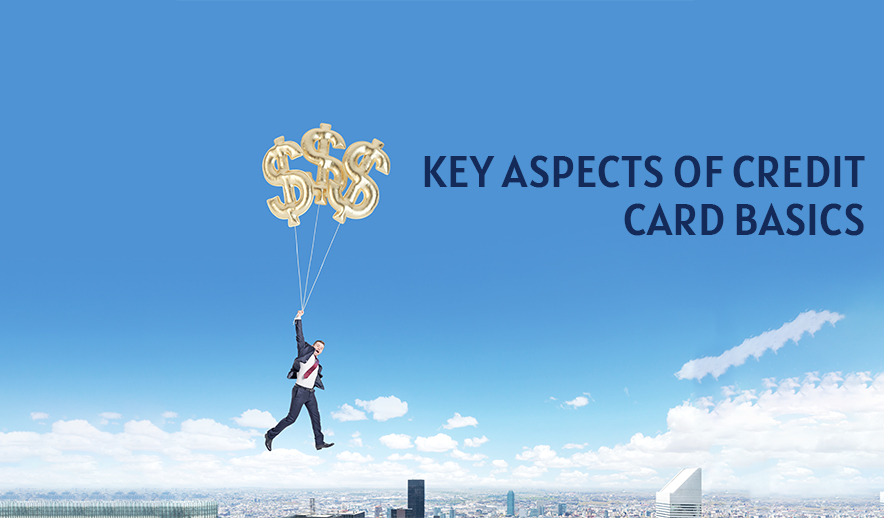
Credit Cards Unveiled: Unlocking the Basics for Financial Freedom

Credit cards are financial tools that allow individuals to make purchases on credit. Here are some key aspects of credit card basics:
Definition: A credit card is a payment card issued by a financial institution that allows the cardholder to borrow funds to make purchases, with the promise to repay the borrowed amount later.
Credit Limit: Each credit card has a predetermined credit limit, which is the maximum amount the cardholder can borrow using the card. The credit limit is based on factors such as the cardholder’s creditworthiness, income, and repayment history.
Cardholder Agreement: When you receive a credit card, you enter into a cardholder agreement with the issuing bank. The agreement outlines the terms and conditions of card usage, including interest rates, fees, and payment obligations. It is important to read and understand this agreement thoroughly.
Billing Cycle: Credit card activity is typically organized into billing cycles, which are usually monthly periods. During a billing cycle, the cardholder can make purchases or use the card for transactions. At the end of the cycle, a billing statement is generated, summarizing the transactions and outstanding balance.
Minimum Payment: The credit card statement indicates the minimum amount the cardholder must pay by the due date to remain in good standing. This amount is typically a small percentage of the total balance or a fixed minimum, but it is important to note that paying only the minimum can lead to interest charges and a prolonged repayment period.
Interest Rates: If the cardholder does not pay the full outstanding balance by the due date, the remaining balance accrues interest. Credit cards often have high-interest rates, known as Annual Percentage Rates (APR). It is advisable to pay off the balance in full each month to avoid interest charges.
Grace Period: Credit cards often provide a grace period, which is the time between the purchase date and the due date for payment. If the balance is paid in full within this period, no interest is charged. Grace periods usually apply only to new purchases and not to cash advances or balance transfers.
Fees: Credit cards may have various fees associated with their use. Common fees include annual fees (charged annually for card membership), late payment fees (if the minimum payment is not made by the due date), over-limit fees (if the cardholder exceeds the credit limit), and foreign transaction fees (charged for transactions made in a foreign currency or country).
Credit Score Impact: Credit card usage and repayment history have an impact on your credit score. Timely payments and responsible credit card management can help build a positive credit history, while missed payments or high credit card utilization can have a negative impact.
Rewards and Benefits: Many credit cards offer rewards programs, such as cashback, points, or travel rewards, where cardholders earn rewards for their spending. Additionally, credit cards may provide benefits like purchase protection, extended warranties, travel insurance, and access to exclusive events or airport lounges.
Using a credit card can offer several advantages, but it also comes with certain drawbacks. Here are some pros and cons to consider when using a credit card:
Pros of using a credit card:
Convenience: Credit cards provide a convenient and widely accepted payment method, allowing you to make purchases online, in-store, and while traveling without carrying cash.
Building Credit History: Proper and responsible use of a credit card can help establish or improve your credit history. Regular, on-time payments and low credit utilization can positively impact your credit score.
Rewards and Perks: Many credit cards offer rewards programs that allow you to earn cashback, points, or airline miles on your purchases. These rewards can be redeemed for discounts, free flights, hotel stays, or other benefits.
Purchase Protection: Some credit cards provide purchase protection, which can offer additional coverage against theft, loss, or damage for items bought with the card. This can provide peace of mind when making expensive purchases.
Emergency Situations: Credit cards can be a helpful backup during emergencies or unexpected financial situations when immediate funds are needed.
Cons of using a credit card:
High-Interest Rates: If you don’t pay off your credit card balance in full each month, you may be subject to high-interest charges, resulting in the accumulation of debt. Paying only the minimum amount due can lead to long-term debt and interest payments.
Potential Overspending: Having a credit card may tempt you to spend beyond your means. It’s essential to exercise self-discipline and avoid unnecessary purchases or exceeding your budget.
Fees and Penalties: Credit cards may come with annual fees, late payment fees, cash advance fees, or foreign transaction fees. Failing to make payments on time or exceeding your credit limit can also result in penalties.
Negative Impact on Credit: Misusing a credit card, such as making late payments or maxing out your credit limit, can negatively affect your credit score and make it challenging to obtain loans or other credit in the future.
Security Risks: Credit card fraud and identity theft are potential risks. Protecting your credit card information, monitoring transactions, and promptly reporting any unauthorized activity are crucial to mitigate these risks.
It’s important to note that the pros and cons of using a credit card can vary depending on individual circumstances and financial habits. Responsible usage, such as paying bills on time, keeping low balances, and being mindful of spending, can maximize the benefits while minimizing the disadvantages of using a credit card.
Understanding these credit card basics is essential for responsible credit card usage. It’s important to use credit cards wisely, pay bills on time, and keep track of spending to maintain a healthy financial position.



